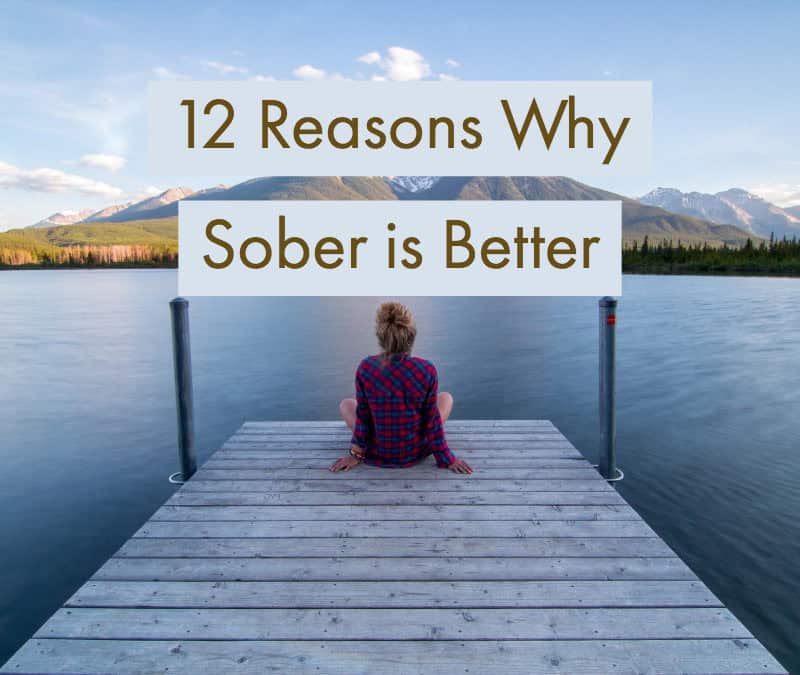
by Paul Churchill | Dec 31, 2018 | Blog, Expectations, The first Year
The decision to cut alcohol out of your life will pay off huge dividends in 2019 and much longer. Trust me…
Happy New Years Eve! Breaking news… You don’t have to drink today. In fact, over the years, I’ve met several people whose sobriety date was December 31st. You can have a hangover on the first day of the year, or you can wake up feeling refreshed. It’s up to you.
Deep down inside, at the core evolutionary level, we arrive on this planet fully equipped to live a happy life without any external substances. Especially alcohol. Here are 12 reasons why sober is better and why it’s a good idea to get the new year started off right with the Best Sobriety Podcasts.
1. Look you’re best
In Café RE, I see before and after pics posted all the time and oh my goodness are the transformations incredible. Within 30-60 days of quitting drinking, you’ll have people pull you aside and say, what’s your secret? You must be eating at the new vegan restaurant next door and are sipping on pure kale juice? I want to be clear, this statement has nothing to do with shedding pounds. I’ve seen people go up to their beautiful healthy weights, I’ve seen the color of people’s skin change, I’ve seen smiles return to faces.
2. Feel your best
More important than looking your best (external), you’ll start to feel your best (internal). I remember when I was drinking, the first 10-20 seconds when I woke up in the morning were intimidating. I knew I was going to feel less than average. Upon waking, I was afraid to fully assess the amount of damage I had done to my central nervous system the night before. The most important catalyst to feeling your best starts with sleep. While drinking, there was no quality sleep. If I could summarize how I feel in sobriety with one word, that would be – rested.
3. Alcohol can fix things you didn’t know were broken
Within time, you’ll start to notice issues (internal and external) slowly begin to fade away. These could be health issues or turbulent relationships with loved ones or co-workers. I never was a long-distance runner. I didn’t think I had the genetics to do it. I would tell myself that I’m built for quick bursts, like a cheetah. In sobriety and my normal one to three mile runs turned into five, seven and even a twenty-three mile ridge run race at year 3 in sobriety.
4. Make the most of your time spent on this planet
Human beings are awake on average 15 hours and 30 minutes per day. Make all the hours great. I remember towards the tail end of my drinking, the first 6-8 hours of every day were blah, at best. I’d then turn a corner and say, okay, I’m starting to feel better. A couple hours later I’d say, I’m feeling good, today is a good day. Unfortunately, at that moment, I’d also say, let’s take a detour from the present moment and start drinking. No matter how many times I promised myself today would be different.
5. Build better relationships
The opposite of addiction is connection and while we’re drinking, we’re not connecting. We may think imprinting our ass on a bar stool for hours at a time helps us build lifelong friendships that will endure the test of time, but that’s not the case. Conversations without alcohol are always more enjoyable. They’re authentic. Also, when we quit drinking, it will become clear who we need to spend time with.
6. Confidence
I had this feeling as a kid, and I think most of us had it at some time in our life, which was I can do anything if I put my mind to it. That feeling is better than any drink, drug, adrenaline rush, etc. In sobriety, you’ll find your inner voice saying things like, “I think I can do this,” which transitions into “I can do this,” to eventually, “I am doing this.” This state of mind was gone when I was drinking. Welcome back!
7. Less fear
The underlying level of fear in your life will drastically be reduced. You’ll be less afraid. You’ll stop making decisions based on fear. You’ll be more proactive in life instead of reactive. If we are always making decisions based on fear, we aren’t moving forward in life.
8. You’ll save a sh*&^t ton of money
According to my Recovery Elevator sobriety tracker, I have saved $37,486 since I quit drinking. This isn’t chump change found under a couch cushion. That’s a lot of money. This past April, I closed on a house on 1.5 acres outside of town. I’m surrounded by mountains, across the street is a 1,200-acre dairy farm, and the sunsets are epic. Down payment required for this house was, roughly the amount I’ve saved from drinking. This would have never happened if I was drinking.
9. You’ll be living in the present Moment
You’ll find yourself saying, what is this? This intangible presence that I can’t touch but I know is there. The thing that I’m hyper aware of that I never seemed to notice before. It must be the present moment. When we live in the present moment, depression (the past) and anxiety (the future) fade away. Why is the present moment so powerful? Because it’s all we have.
10. Avoid unnecessary disasters
You won’t be ruining your cousin Mindy’s wedding, or you won’t park a car in your neighbor’s pool. It seemed like once a year I did something I deeply regretted. At first, it was making an ass out myself at a party, but as the drinking progressed, the consequences became more catastrophic, like a DUI while driving to work in 2014. It’s nice to put substantial distance between me and those tragic events in life.
11. Create the future you want
I thought I could make the life I realized a reality while I was drinking, but that wasn’t the case. The grandiose goals and plans I projected in my future during my drunken states, never even reached a whiteboard when sober. As long as I was drinking, the tires of life were spinning in the sand and towards the tail end of my drinking, the tires were removed entirely. This is where sobriety gets exciting. The life transitions that I’ve seen take place are incredible. I met a guy named Patrick who attended the Peru trip and in sobriety, he has sold a portion of his shares in his restaurant group, purchased one of those “souped” up sprinter vans with Scandinavian interior finishes, bought like a 50 mountain ski pass and is living the life he’s always wanted to live. Anything is possible in sobriety.
12. You’ll start to make healthy memories
Within time, you’ll start to create new, fun and exciting memories. I’ll be honest, getting sober was a challenge, to say the least, but in the past four years, I’ve had some incredible memories and met some fantastic people. Several of these memories are from Recovery Elevator meet-ups. Some of them are epic sunrises with my standard poodle Ben. It’s also a compilation of the excellent smaller memories. It’s the little things that count!
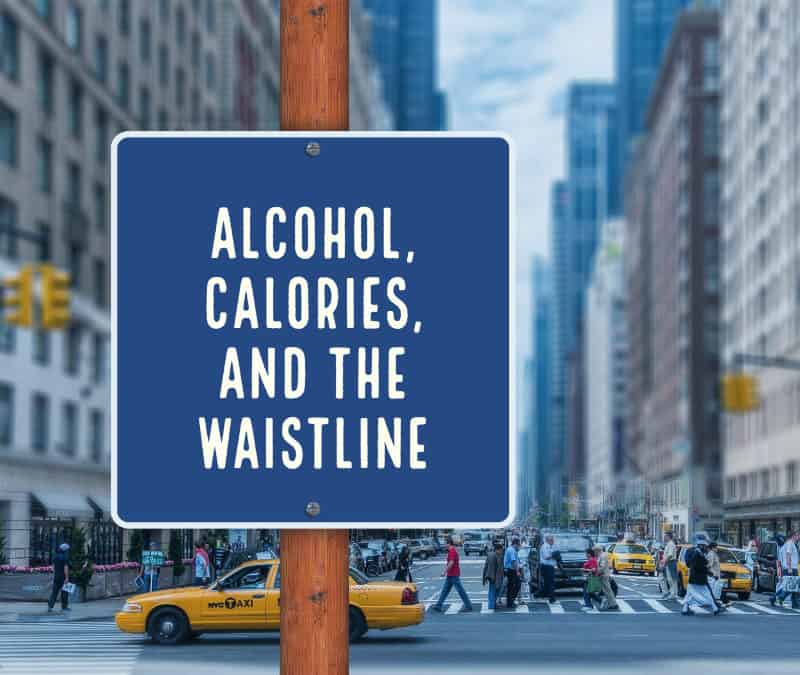
by Paul Churchill | Dec 24, 2018 | Blog, Diet & Fitness, Early Sobriety, Expectations, Nutrition
I drank a lot of alcohol. Alcohol caused a lot of damage in my life. Was any of it good? Was I able to at least get some nutritional value from $14 beer night? Well, let’s take a look.
Alcoholic beverages primarily consist of water, pure alcohol (chemically known as ethanol), and variable amounts of sugars and carbohydrates; their content of other nutrients, proteins, vitamins, or minerals is usually insignificant. Because they provide almost no nutrients, alcoholic beverages are considered “empty calories.” It’s safe to say a Twinkie has more nutritional value than any alcoholic drink, and it’s common knowledge that Twinkies are terrible for us. The good news is none of us lack any dietary components by not drinking. Alcohol is still shit.
Let’s talk calories for a second. 1 gram of alcohol contains 7 calories compared to 4 calories per gram of proteins and carbs, and 1 gram of fat contains 9 calories. Again, those are 7 hollow calories because the body never uses them.
Let’s find out what these calories are doing to us over the long haul.
1 12 oz. can of beer = 154 calories. 1 glass of wine around 125 calories and 1 whiskey coke has 180. Let’s average the three and use 153 calories per drink. Let’s say we average 5 daily drinks which equates to 765 meaningless calories per day. 5,355 per week and 278,460 per year. 1 pound of fat is roughly 3,500 calories, so this is close to 80 pounds of excess garbage the body must deal with.
Another snippet to drive this point home, 1 pint of beer contains roughly the same number of calories as a slice of pizza. But it’s not even apples to apples, because even though the slice of pizza isn’t the healthiest option, the pizza still contains some vitamins, minerals, and calories the body can use for energy. A pint of beer, not so much. If we average 4 pints a day, this is 1,460 slices of pizza per year, and I hope there’s at least pineapple on that pizza. I know I just lost some readers with that pineapple comment.
The human body is impressive, but it does not digest the calories from alcohol efficiently. What does efficiently burn alcohol? That would-be machines, cars, airplanes, motorcycles, generators, you get the point. The metabolism of alcohol is a complex, multi-stage process that takes place mostly in the liver and kidneys, not in the intestines, where normal digestion occurs. More significant to the current discussion, alcohol is almost never fully metabolized, but instead excreted as acetic acid, because it’s a toxin that the body wants to get rid of. When we binge drink, some of this is permanently deposited in the brain and stored as acetaldehyde.
Let’s talk about timing and when these calories are burned.
Alcohol temporarily keeps your body from burning fat, explains Dr. Pamela Peeke, author of the book “The Hunger Fix.” The reason is that your body can’t store calories from alcohol for later use, the way it does with food calories. For example, when we consume something high in calories like a hamburger, the body will way say, whoa, this is a lot of calories, this is more than I can handle at this moment, I’ll save some of this for later. The body can’t do this with alcohol. So when you drink, your metabolic system must stop what it’s doing (like, say, burning off calories from your last meal) to get rid of the booze. “Drinking presses ‘pause’ on your metabolism, shoves away the other calories, and says, ‘Break me down first!'” Peeke explains. The result is that whatever you recently ate gets stored as fat. What’s worse: “Research has uncovered that alcohol especially decreases fat burn in the belly,” Peeke adds. “That’s why you never hear about ‘beer hips’ — you hear about a ‘beer belly.'”
Why do we get uncontrollable hunger when we drink?
Alcohol impairs inhibitory control, which leads people to eat more. There is evidence that alcohol can influence hormones tied to feeling full. For example, alcohol may inhibit the effects of leptin, a hormone that suppresses appetite, and other hormones that inhibit food intake. According to one study, neurons in the brain that are generally activated by actual starvation, causing an intense feeling of hunger, can be stimulated by alcohol. Bring it on 2 am Taco Bell run.
Let’s talk about a decreased appetite malnutrition.
Stay with me for a second. Over time, chronic alcohol abuse and alcoholism can take a severe toll on a person’s appetite and nutrition levels. Alcohol inhibits the breakdown of nutrients into usable molecules by decreasing secretion of digestive enzymes from the pancreas. Alcohol impairs nutrient absorption by damaging the cells lining the stomach and intestines, and disabling transport of some nutrients into the blood. Also, nutritional deficiencies themselves may lead to further absorption problems. For example, folate deficiency alters the cells lining the small intestine, which in turn impairs absorption of water and nutrients, including glucose and sodium.
The NIAAA reports, “Even if nutrients are digested and absorbed, alcohol can prevent them from being fully utilized by altering their transport, storage, and excretion.”
After a while, the body, instead of working overdrive to properly digest what we consume, it hits the off switch on the appetite. I experienced this after about 10 months into owning my bar in Spain. At first, I would make a late-night stop at the pizza shop, but eventually, I found myself forcing calories into my body. I had entered the malnutrition phase of the addiction cycle. I found that it took about a week for my appetite to return once I quit drinking.
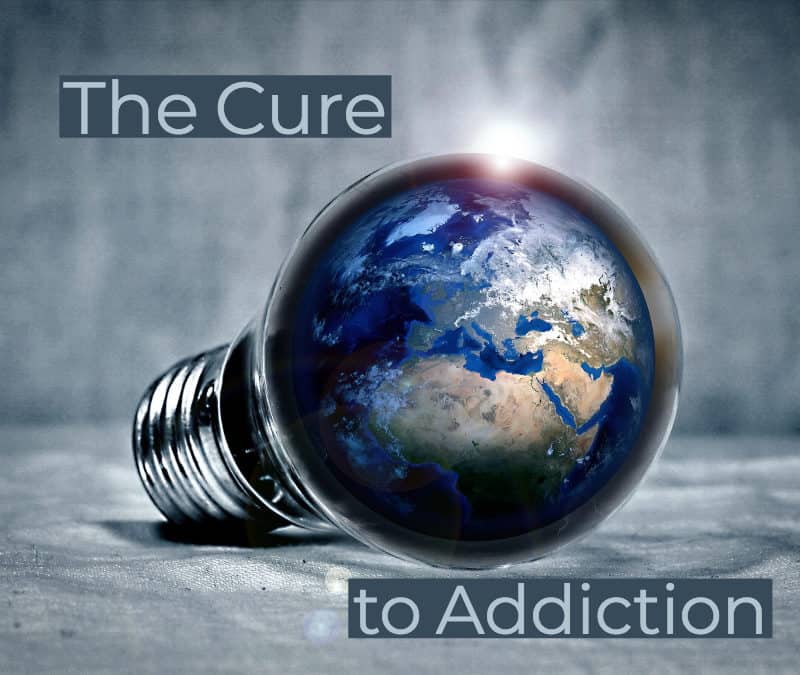
by Paul Churchill | Dec 5, 2018 | Blog, Expectations
I’ve been wanting to write this post for quite some time, and I’m excited to have finally done so. A cure to addiction… Is this even possible? Before we explore this, let’s take a snapshot of what addiction is right now. At this moment in time, 2018, I feel we are at the beginning of what our understanding of what addiction even is, let alone finding a treatment for it. Are we close to a cure at this moment? Unfortunately, I don’t think so, in fact, I don’t believe we are even close. With 83 years passing since the inception of AA in 1935, we still don’t know much about what causes addiction and how to treat it; especially modern science. In 2014, there were 143 med schools in the USA, and only 14 of them had 1 class on addiction even though it’s estimated that 40% of hospital beds are occupied due to alcohol-related issues. This is staggering. It can be said that rehab is a 30+ thousand-dollar introduction to 12 step programs, and the best study that I can find is that AA has a 7-8% success rate according to the Sober Truth by Lance Dodes. Currently, 85% of rehab facilities are 12 step based. Studies show that 2.5 people out of 1000 make it to 2 years of sobriety. Yikes, but the good news is you can continuously start over. Governments have no idea how to deal with addiction. The 40 years, 1 trillion-dollar war on drugs has primarily been a waste. There are still 21 million Americans, 80% of those with alcohol use disorders, who need treatment with addiction. Estimates show that of these 21 million Americans, only 10% of those get the actual help they need. I don’t want to paint a grim picture for readers, but currently, on this planet, we aren’t doing so hot when it comes to treating addiction. In fact, we’re failing, but it’s a start.
Bill Wilson and Dr. Bob created a fantastic program called Alcoholics Anonymous that currently has over 2 million members in over 120,000 groups worldwide. There is Smart Recovery, Refuge Recovery, yoga, meditation, Recovery Elevator and more. People are trying their hardest to tackle this planet’s most pressing epidemic; addiction. Despite the bleak snapshot painted above, I feel we are on the right track. I think in 500 years when we look back, we will all be looked at as pioneers for what shaped the way for recovery treatment. Or what we’re doing now may be like bloodletting. Doctors thought for around 800 years that bloodletting was the best way to rid the body of an infectious disease. Turns out, human beings need blood. I don’t think this is the case with how we are currently treating addiction, but you never know.
Let’s discuss what I mean when I say cure to addiction. What I’m proposing should render addiction obsolete. As in it won’t happen, or least not nearly at the level of occurrence that we see today. I guess this wouldn’t really be a cure, because to have a cure, you would need a disease, and what I’ll be covering should essentially create an environment that doesn’t foster the disease. Too much of western medicine emphasizes treating existing illnesses since there isn’t much money to be made in getting at the source. When I say cure to addiction, I don’t mean addiction happens, then insert treatment. I’m saying, addiction doesn’t happen in the first place. This is the more ideal scenario. I’d be more than happy to be out of a job.
Keep in mind, this is all speculative, some of these ideas may seem so far out, so bizarre that it isn’t even a possibility… But if you give it some thought, this may make sense. Some of you will agree with this, some of you might not want what I’m proposing ever to happen. In fact, it scares me too. It’s uncomfortable. Who knows, if MP3’s are still a thing in 500 years, I may get this spot on, or I may have wildly missed the mark.
Where did I get the idea for this post? For the cure to addiction? Well, it was at my fantasy football draft in Las Vegas this past August. We were having dinner at the Hofbrauhaus House, and I was watching my two buddies argue about the dividing topic of immigration. One of them is a liberal, and the other is a conservative. They’ve had this same conversation or a similar one, the past 5 drafts. I knew I wouldn’t be engaging in this conversation, so I decided just to sit, listen and observe. As they were defending their steadfast positions with eloquent and non-eloquent diatribes based on part fact but mostly conviction, a strange thought arrived. It said the only way to solve the immigration issue is to eliminate all borders. Across the whole planet. And before we go any further, I want to mention, this post is about addiction, not immigration or politics, so please do your best to listen with an open mind. I said to myself, no, that can’t be right. That will never happen. And then the wheels in mind started moving. So much so, that I had to step outside the restaurant and sit on a bench for about 10 minutes. My brain kept connecting the dots until I said, holy shit. That’s the cure to addiction. Yippee!!
You might be saying to yourself episode 199 ended with you thanking planet earth, now you’re talking about a world with no borders. Wow, Paul, I bet you’re wearing Birkenstocks and have distanced yourself from all forms of plastic. Nope, I’m a guy who lives in Montana, a red state, who shoots clays with my shotgun for fun on the weekend, but deep down, even though some of it doesn’t sit well with me either, it feels right.
Okay, let’s explore this. In my opinion, the most profound line in “The Realm of Hungry Ghosts” by Dr. Gabor Mate, is that anthropologists have no record of addiction in pre-modern times. Contrary to popular belief, Europeans did not bring alcohol to the Native American, Inuit, and Aboriginal populations, or to South America to the Mayans, Incas or Aztecs. Alcohol has been around for 1,000’s of years and records show that all these cultures consumed alcohol. So why is that only within the past 400-500 years has abuse of alcohol and addiction been a problem. Why has is the swath of addiction caused more havoc within some social groups more than others? Before we discuss this, let’s look at the Rat Park experiment conducted by Bruce Alexander.
I first came across this study in my first year of podcasting, and I’m reluctant to say, I dismissed it. At that time, I was in the camp that addiction is roughly 80% genetics and about 20% environmental, now, I’ve done somewhat of 180. I feel that addiction is about 20% genetics and 80% environmental. Okay, back to Rat Park. The study looks at two different environments for rats. In one cage, it had a single rat. The rat has access to food, water, and cocaine. It was only a matter of time before the lone rat chose a diet of strict cocaine and ended up dying. This process was repeated continuously with the same result. You might say, duh, cocaine is one of the top 4 most addictive drugs on the planet. But what happens when the environment changes. The second environment is called Rat Park which is full of rat families, with toys for the rats to play with, with mates for the rats, and probably Third Eye Blind Playing in the background. In Rat Park, the rats have access to food, water, and an unlimited supply of cocaine. What happened? Nothing. Cocaine/addiction was no longer a problem. Eliminate stress, change the environment, and eliminate addiction. It worked for rats, it should for us right? Well not so simple, but in theory, yes, and it’s gonna take some time. Johan Hari talks about this in his Ted Talk titled, “The Opposite of Addiction is Connection.” I highly recommend watching this. He continues to say the opposite of addiction isn’t sobriety. It’s connection. I would say it’s more of a combo of sobriety and connection.
I am also reluctant to say when I first saw Johan Hari’s Ted Talk 3 years ago, I dismissed it and wasn’t a big fan. Now, I think I think, for the most part, it’s spot on. Johan’s Ted talk is starting to echo a theme that has been presenting itself the more I learn about alcoholism and addiction. That addiction is not about the pleasurable effects of substances, it’s about the user’s inability to connect in healthy ways with other human beings. In other words, addiction is not a substance disorder, it’s a social disorder. Previously, when I first started the Recovery Elevator podcast, early 2015, I was in the camp that the pleasurable effects of alcohol, and drugs, were the primary drivers for addiction but now I feel that the pleasurable effects of alcohol and drugs help soothe inner trauma and our inabilities to connect healthily with other humans. On an individual level, we are not at fault for this. In today’s breakneck fast-paced world, we are living further and further away from other human beings, we falsely connect more and more via social media and our society has a significant problem with accumulating external possessions because we’re taught this is healthy. Unfortunately, much of today’s economy is reliant upon our addictions.
I feel the birth of addiction occurred with the mass displacement of people from their lands, communities, and roots that started with the substantial land grabs of the Spanish, French, Dutch, English, and Americans on our own continent. Some groups of people, who are disproportionately affected by addiction, got the raw end of the stick, and they are still paying the price. What about those who weren’t displaced from their lands, maybe someone like myself and probably several other listeners. Well, life has drastically changed for everyone on the face of the planet in the past 500 years, Especially in the previous 100, and even more so in the past 50. Before the first flight took place in 1902, it was a lot harder to leave a community. Today, I think a lot of us are still trying to figure out “where we belong” and this sense of alienation has affected some more than others. For myself, this has resulted in addiction.
Back to the absence of addiction in pre-modern times. You might be saying to yourself, Paul, I’m relatively certain borders, boundaries, tribe lines, restrictions, precincts, confines, rivers existed in pre-modern times… Yes, this is correct. But when civilizations remained settled for upwards of 500-1,000+ years, and you were lucky to have oxen and wagon, you may have never encountered a border or really knew what one was in your lifetime. If everything you needed was already in your own “rat park,” then why leave?
Now let’s explore a futuristic world without borders. Again, this scares me. Big time, but if you think about it, it’s really the only way things can go. We’ve been doing the conquer, defeat, divide, overthrow, coup, rebellion, revolution, wage war, WWI, WWII, with sticks and clubs and now with nuclear bombs. For ages. It’s not working, and human beings are starting to wizen up. The EU opened its borders up in 1985, and this has made things easier.
When will this no border fantasy world occur? I don’t know, it might not. Artificial Intelligence might have something to say about it first. With the proliferation of social media, which isn’t a genuine human connection, things may get a lot worse before they get better. But barring nuclear war, ending everything for everyone, I think this will happen in the next 300-500 years. If you’re saying to yourself, I don’t want to live next to a white person, or I don’t want to live next to a black person, well, in the next 200 years, we’re all going to be the same color anyways so please get over yourself. I think, when everyone can move about this planet freely, when we can accept all human beings as equal when we are able to establish roots and communities wherever we’d like, then I think we’ll wake up one day and see the problem of addiction slowly fade away.
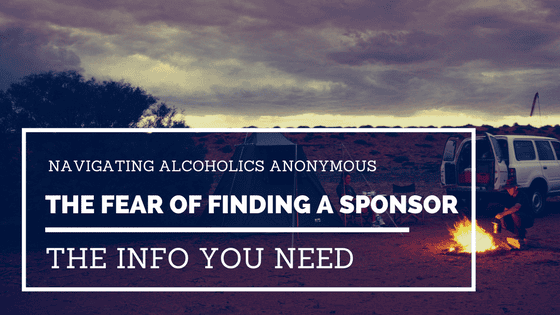
by Paul Churchill | Sep 25, 2016 | Early Sobriety, Expectations
“I wish there was a Tinder style app for finding a sponsor.” I exclaimed with frustration to my roommate last week.
“It’s genius! Each person would have their photos, a short recovery bio, their daily routine and a list of hobbies. You could swipe right (to say yes) on the ones that seem like a good fit, left (to opt out) on the ones that obviously aren’t. Then, after some texting, see it it’s worth meeting up to work on the steps!”
It felt silly to stack recovery up against the popular dating phone app. But I was getting desperate.
To my surprise, my roommate recoiled at the thought. “That’s too easy. Half the growth comes from overcoming that fear of asking someone in person. I’m sure it’s just the first of many awkward steps you have to go through in early recovery.”
Dammit. She was right.
And she wasn’t even in recovery. Just a wise soul capable of looking right through my BS.
The fact of the matter was, I was in need of a sponsor. I had been in need of a sponsor. However, I felt as though I was facing an impenetrable wall of both external and internal obstacles. No women in my AA group. An insanely busy schedule. My upcoming move to a new city.
But the most daunting obstacle was overcoming my sense of self-worth, or lack thereof.
I’ve always been one of those oh-I’m-sorry-to-bother-you types, often going out of my way to avoid being a nuisance to others. It’s a quality I generally mask behind ostensible independence. I act like I have it all under control without the need for anyone’s help when, really, I’m simply grappling with an overwhelming sense of unworthiness.
So, of course, the thought of having to approach someone I barely knew and ask them to help me navigate the darkest, ugliest, most shameful parts of my psyche left me feeling vulnerable. I didn’t feel ready to spiritually disrobe in front of a stranger. What would they think of my soul’s lumps, wrinkles, and cellulite?
Early recovery is like being a teenager again. We’re all just a couple of pimply-faced kids awkwardly wandering through the school halls of life. Asking someone to be our sponsor is basically the equivalent of asking someone to the prom. What if they say no? What if it gets weird? What I fart during the first meeting?
And then there’s figuring out how to go about asking.
Maybe I’ll do it like I’m asking someone to prom. How about I craft a sign that says “Will you be my sponsor” in rose petals , and hold it up in front of the seemingly wisest woman in the room. Too much?
At the end of the day, there’s really no right or wrong way to go about it. The lesson here is stepping outside of our comfort zone and learning how to ask for help.
It didn’t take long after I decided to stop stressing about finding a sponsor that one came to me. I decided I would do what was in my control, and leave the rest up to the universe.
Whenever I got selected to speak, I would casually mention I was looking for a sponsor. I would chat people up after meetings, even when I didn’t know what the ‘eff to say (usually a “Oh hey, I really like what you said about blah blah blah” makes a great ice-breaker.)
Anyways, I found a sponsor. Yep. It happened. After my last meeting, a lovely young woman floated over to me and casually said, “Hey! You really need a sponsor? I really need a sponsee!”
What? You really need a sponsee?
And then it dawned on me. When it comes to sponsors, we are just as much a part of their recovery as they are to ours. And all this time I was worried about being a burden to someone, when it turns out, that someone needed me just as much as I needed them. All my fears, my doubts, my weirdness evaporated at the realization.
It was match!
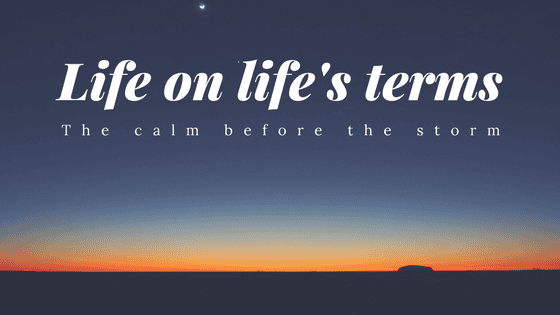
by Paul Churchill | Aug 2, 2016 | Early Sobriety, Expectations
So when I think about my mind, I imagine myself paddling a canoe, with the water beneath me as my thoughts. Sometimes it’s a pleasant current underneath a warm sun. Other days, it’s a bit rainy, maybe a few waves, but manageable.
Today, on the other hand, I was getting tossed around tumultuous stormwaters. Lightening was striking, thunder was booming, and my paddles were flailing about in feeble attempt to steer my lurching vessel. It was exhausting.
And, in typical alcoholic fashion, my first instinct was to crawl into a hole. I yearned for isolation. I wanted to be far away from ANYBODY. You know, alone, with all those amazing, self-defeating thoughts of mine!
BUT that was simply not an option tonight! Because for my business I had to be present at one of the biggest community music events and be social. I was dreading it. UGH! MY LIFE, IN SHAMBLES, BECAUSE I HAVE TO BE BUBBLY! WOE IS ME.
So I went. And I saw that wine, and I thought…”Oh, I’ll just start again tomorrow. What’s another Day 1? I’ve already had a rough day and I’ve eaten tons of sugar and I want to feel social.. etc etc excuse excuse.” There I was, wanting to ENHANCE with booze.
But I let the thought come, and then I let it go. I was DETERMINED to PROVE to myself that, yes, I CAN have a BLAST sober.
And guess what? I totally did. It was awesome. Shared some great laughs with old friends. Came to a very profound realization that being present for and connecting with others really helps pull me away from myself (AH-HAH, so THAT’S how AA works!).
After it was all said and done, I drove home, set my stuff on the counter, poured myself a drink of water, went into my room, looked around, and that’s when I realized….
The water beneath my canoe was calm. I could practically see the full moon reflection shimmering on the water’s surface. Couple of frog chirps, even.
I had made it through the storm. I wasn’t sideways anymore. Everything is fine.
Sometimes we just have to trust that this, too, shall pass.
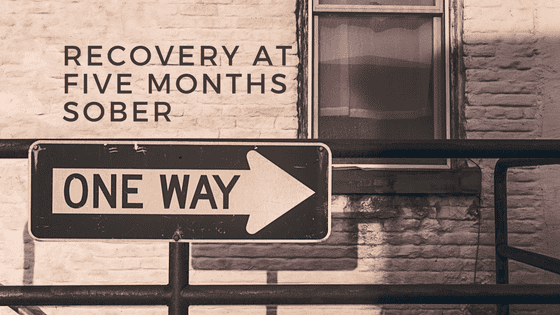
by Paul Churchill | Jun 27, 2016 | Early Sobriety, Expectations, The first Year
I have returned after a long absence! Things are proceeding along for me, and I’m over five months sober–157 days.
My neighborhood is surrounded by a major construction project, one of many throughout our fair city. I have determined this to be more than the usual “construction season” work typical for Minnesota in the warm months, in preparation to host the Superbowl in 2018. This is a huge time of transition for the city, and I only hope its effects are lastingly beneficial to the citizens.
What truly astounds me is that for only being a few blocks away, my home is still calm, peaceful, and amazingly quiet.
It’s easy to draw the connection, here. As I continue to reconstruct my life through this process of recovery, it can get loud. Obnoxious, sometimes. The inner turmoil of being under construction can be exhausting. Sometimes people close to me have to dodge and duck from mishandled rebar and concrete. I’m not a practiced worker, yet. Sometimes I knock out walls that are meant to be load-bearing with a flick of the wrist while helming a wrecking ball, when all I needed was a hammer. Really all I needed was a level (head).
But my head isn’t always level, and that’s where my Higher Power comes in, when I remember to ask for it. My HP is the site supervisor. It’s what props those walls back up, shuts things down when they overheat, and offers the right tools for the tasks at hand.
And when I’m really paying attention, my HP provides peace, tranquility, and serenity in the middle of a million noisy construction projects. My HP is what keeps the grass green and the trees blooming in the Edens at the eyes of the storms.
And my HP allows me to do a little damage sometimes, make mistakes and try things I’m not fully trained to do, because making those choices will ultimately teach me so much more. So I can grow like the gardens and the parks, live free and wild and always changing.
I hope I’m always a little bit under construction: constantly improving but never perfectly complete.
About the Author: Sarje Haynes is a grateful recovering alcoholic from Minneapolis, Minnesota. Learn more about her journey in sobriety at: https://nowbehere.org/about/








